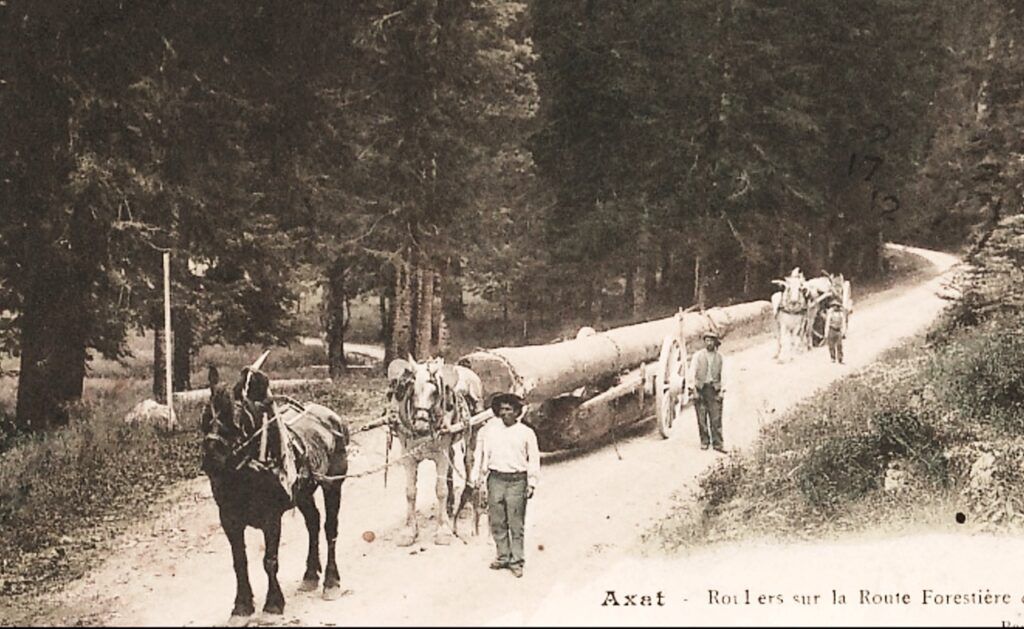In the latest in our Hors d’Oeuvres series, we caught up with Elisabeth Salje to talk about her new article in French History.
Elisabeth’s MA (2016) and PhD (2021) theses at Birkbeck College on French Ancien Régime forestry politics focussed on the social and professional behaviour of venal forestry officers. She is now working on how the drastic regime change following the 1789 Revolution impacted the integrity and effectiveness of their successors.
Hi, Elisabeth, and thanks for joining us! What do you think will most surprise readers in what you have to say?
How much these modest officer families craved to climb the social ladder, ready to clutch on any straw (including fighting for municipal positions) to increase their local credit. It brings into perspective their professional role as royal foresters.
In a nutshell, what is your research about?
Highlighting the multiple identity of modest provincial officials beyond the usual emphasis on the venal nature of their office. They were men and women with family ties, local allegiances, and above all social ambitions that could not be realised through their office alone. To achieve that goal, combining alliances with dominant local families and active participation in municipal politics represented a more effective strategy than the corruption and professional negligence commonly attributed to venal officers.

What was it that first got you interested in researching French history?
I am French and went to French schools, but lived abroad most of my life. In my current research I hope to contribute to the debunking of some stereotypical notions sticking like carbuncles to French history, such as the alleged foreordained recourse to centre-led solutions to the country’s problems, or the axiomatic propensity of Ancien Régime venal officers to be corrupt or negligent. Recover something of the complexity and contradictions of human lives, be they ordinary citizen, rulers or administrators.
Can we talk about the backstory to the article? How did you get interested in this topic?
For my PhD thesis I spent four years following eighteenth-century forestry officers in Quillan, a small town in the Pyrenees. The fact that Quillan’s municipal archives were destroyed by fire introduced frustrating gaps in my narrative. I was lucky to find a near-complete series of minutes of municipal meetings for Villemur, a town in the same province comparable to Quillan. Even better, they are online!
Are you a ‘plan it all in detail’ writer, or a ‘start writing and see where it goes’ person?
It’s quite an iterative process for me. I start with a general idea and a rough structure, then let the archives take the lead. When they drive me too far, I return to my original plan and tweak it to fit in what I’ve found. And so on.
Whose writing do you most admire and why?
Jean Giono, master at describing the interlinking of natural environments and human destinies.
What do you think helpful feedback on writing involves?
When we start engaging with our topic, the first risk is to lose sight of non-specialist readers. When we have reached what appears to be a coherent interpretation of the data, the second risk is to become over-confident and lose sight of alternative explanations and reasoning gaps. In both cases a frank nudge in the right direction is the most helpful feedback.
What are you working on next?
Staying with the overall area of the social history of forestry as a public service, I am keen to work on changes of the social and professional behaviour of forestry officials before and after the French Revolution. The decades between the 1760s and the 1820s saw intense, rapid and fundamental regime changes. By using the foresters’ own publications, mémoires, reports, correspondence and library contents, I aim to discover more about their worldviews and their take on diverse forestry policy options, which can be antithetical. This leads to reflecting more generally on systems of management and control aimed at preserving the forests of a country like France suffused with the notion of state-led forestry.
Favourite archive or library?
The Archives Nationales in Paris.
Favourite century?
The Age of Enlightenment.
Éclair or saucisson?
Both, eaten in reverse order.



